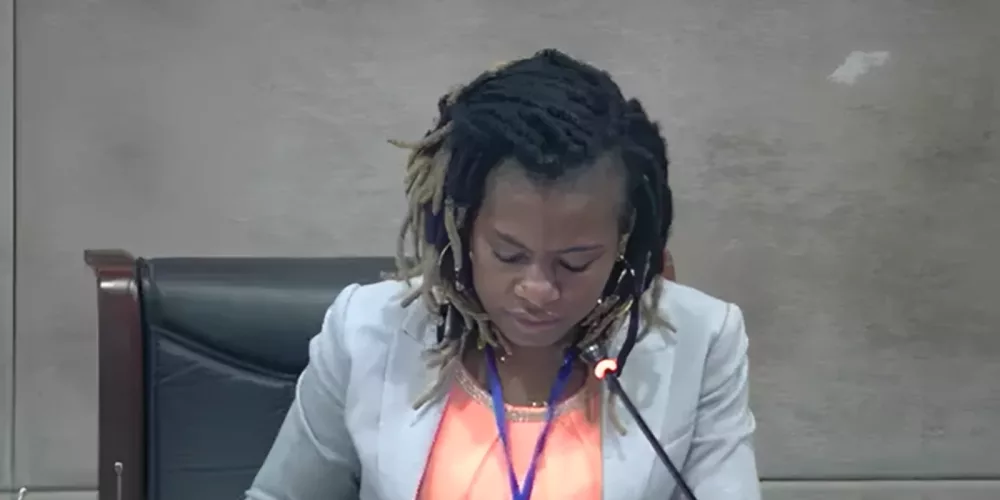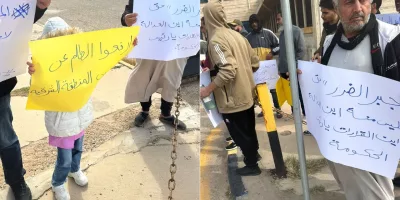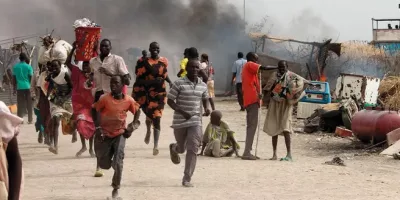The Committee for Justice (The CFJ) submitted a detailed report on the human rights situation in Gambia, which was accepted during the proceedings of the NGOs Forum held on the margins of the 83rd Ordinary Session of the African Commission on Human Rights and Peoples’ Rights, which took place in Banjul from 28 to 30 April 2025.
The Forum discussed the CFJ’s report during the session dedicated to the adaptation and adoption of recommendations, where it was endorsed as an official document reflecting the state of human rights in the country, along with providing practical recommendations to the Gambian government and the African Commission.
According to the report, Gambia has witnessed notable progress since the change in government in 2017, particularly regarding the implementation of transitional justice processes, including the establishment of the Truth, Reconciliation and Reparations Commission (TRRC), which worked to investigate human rights violations that occurred during the rule of former President Yahya Jammeh.
However, The CFJ expressed grave concern over the slow implementation of TRRC recommendations, especially those related to delivering justice to victims of enforced disappearances, torture, politically motivated killings, and sexual and gender-based violence under the former regime. It pointed out that this delay exacerbates victims’ suffering and threatens to hinder the path towards national reconciliation.
The report also highlighted several ongoing challenges facing the human rights landscape in Gambia, most notably weak judicial sector reform, threats and pressures faced by human rights defenders and journalists, the incomplete activation of the National Human Rights Commission, and the continued existence of laws restricting fundamental freedoms, negatively affecting civic space and freedom of expression.
In this context, The CFJ called upon the African Commission on Human and Peoples’ Rights to adopt a decision on the human rights situation in Gambia, urging the government to accelerate the implementation of TRRC recommendations within a comprehensive national plan that includes continuous consultations with victims, civil society organizations, and relevant stakeholders. It emphasized the importance of immediately initiating prosecutions against those responsible for serious violations, ensuring fair trials in accordance with international standards.
The CFJ stressed the need to strengthen the independence and effectiveness of the national judiciary and the National Human Rights Commission and to protect them from any political interference. It also called for the repeal or amendment of laws that restrict fundamental freedoms, particularly freedom of expression, peaceful assembly, and association, in order to protect activists and journalists from intimidation and reprisals.
Furthermore, The CFJ called for close cooperation between the government and civil society in undertaking comprehensive reforms of the security sector, including the police and intelligence services, with the aim of preventing abuses and building trust between security institutions and citizens. It underscored the importance of adopting a gender-sensitive approach in all transitional justice processes, ensuring the representation of women, children, and marginalized groups at all levels of decision-making.
The report also urged the Gambian government to launch legal awareness and civic education campaigns targeting young people, aimed at promoting a culture of peace, democracy, and accountability within society, noting that investment in youth is the cornerstone for building a stable and reconciled nation.
In conclusion, The CFJ affirmed that completing the process of political and institutional reform and respecting human rights are fundamental pillars for achieving stability and sustainable development in Gambia, emphasizing the importance of the government fully upholding its international and regional obligations, particularly under the African Charter on Human and Peoples’ Rights.






